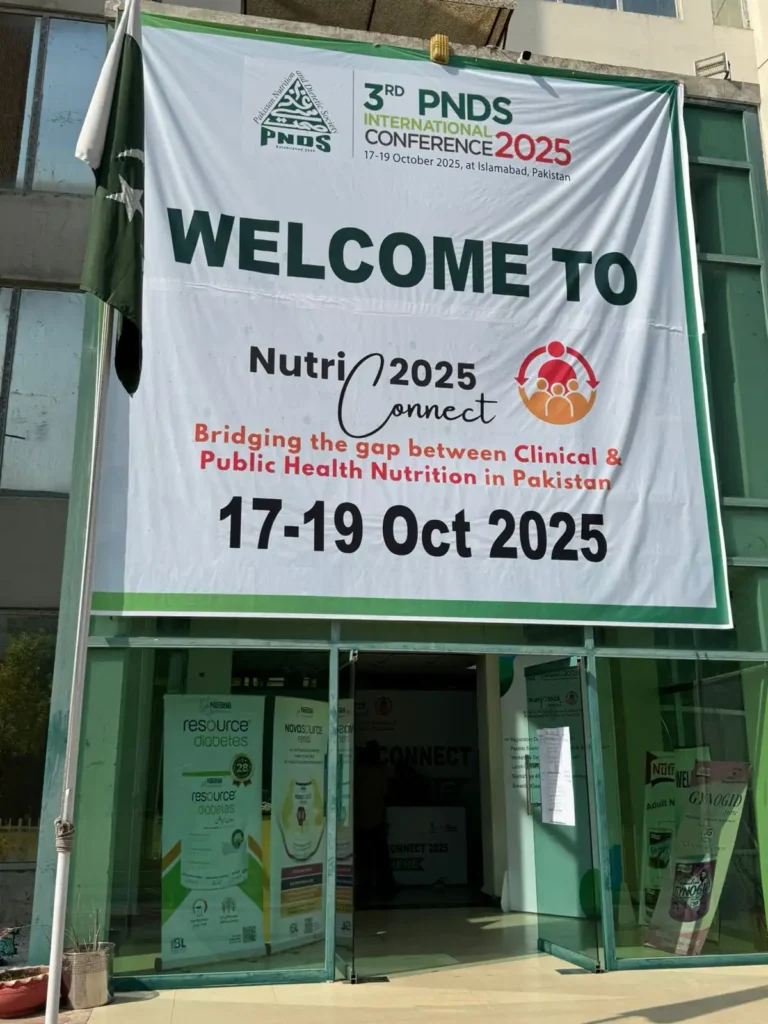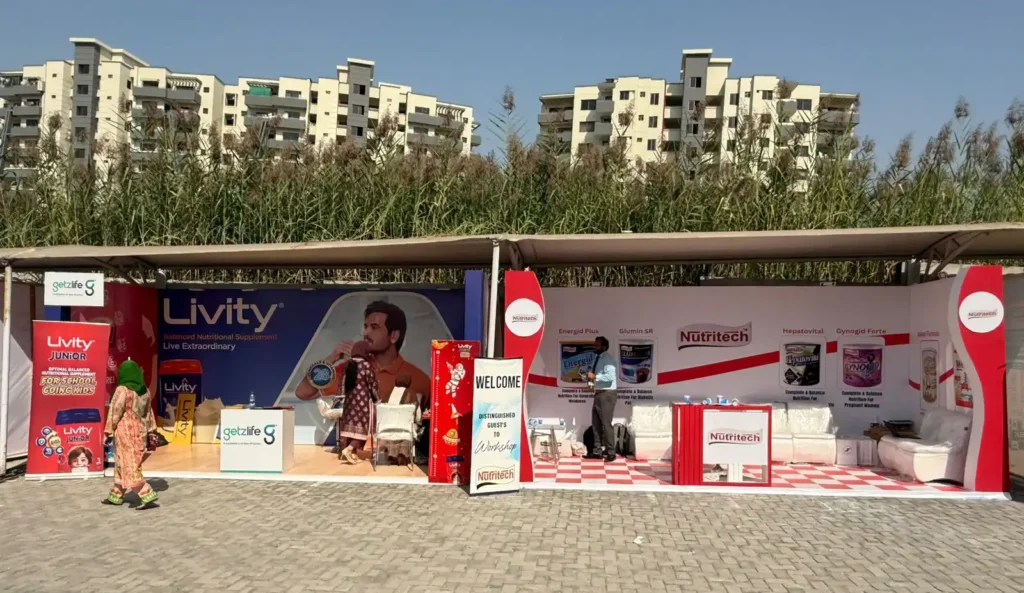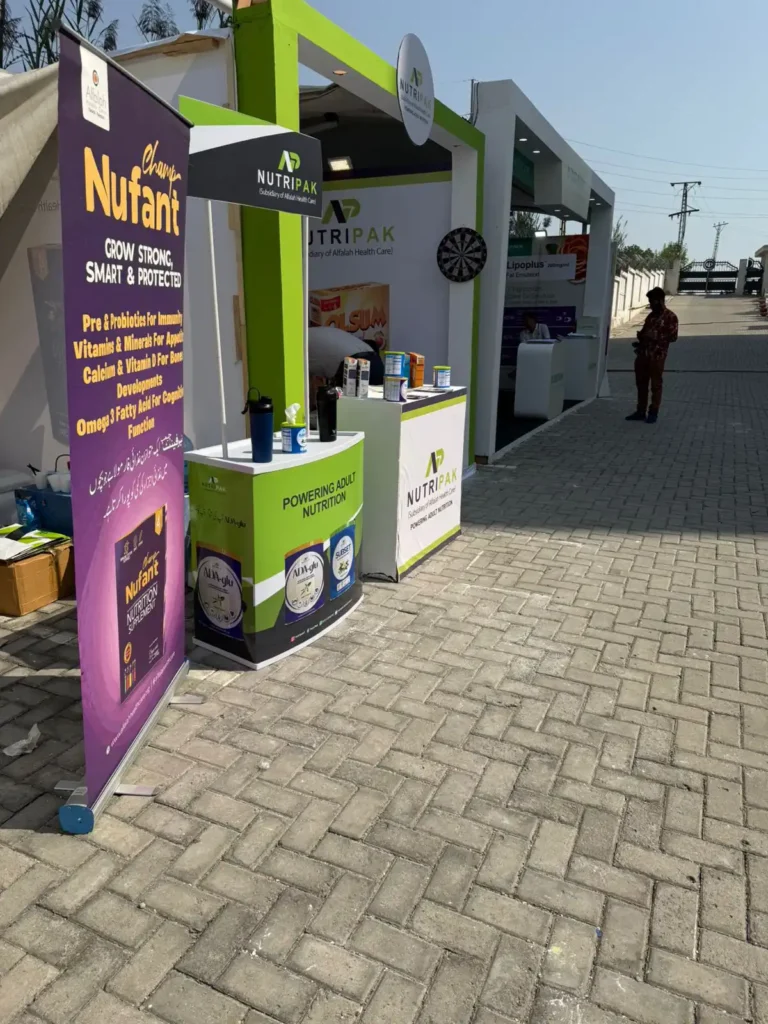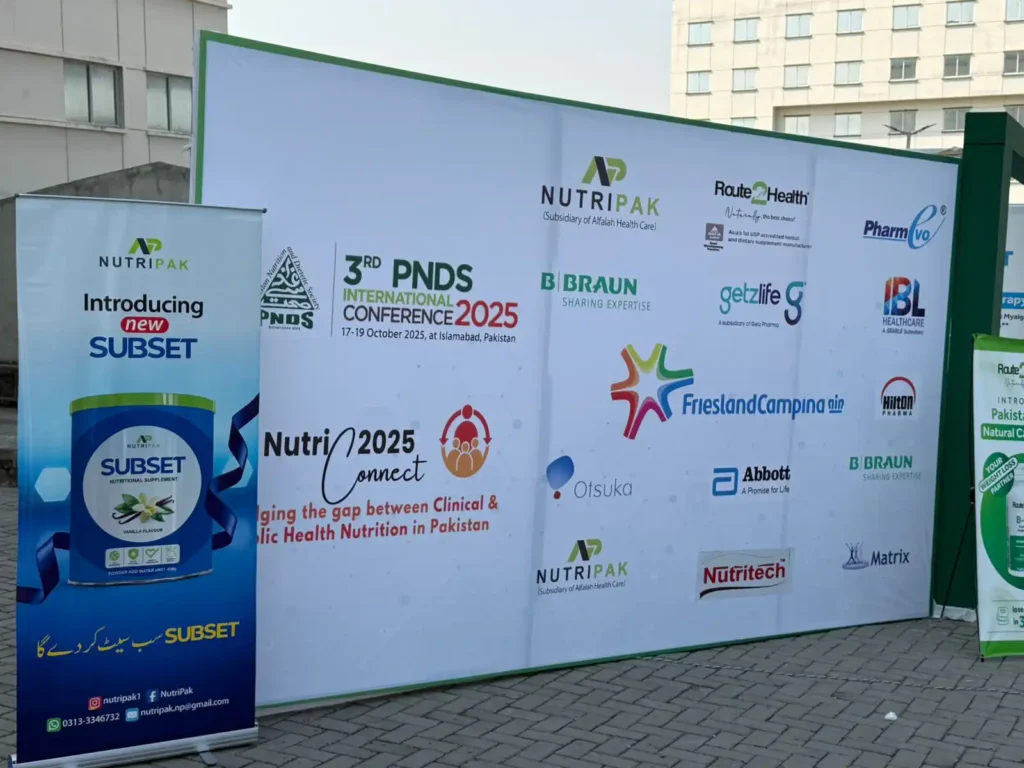Islamabad: A major nutrition conference in Islamabad sparked backlash on Saturday after UNICEF and other international partners, including UN agencies and INGOs, walked out of the event at Hamdard University, saying the forum had been compromised by what they called a “serious conflict of interest and corporate influence.”
The withdrawal began when participants noticed prominent branding, commercial stalls and marketing booths linked to multinational manufacturers of breast milk substitutes, ultra-processed nutrition powders and high-sugar beverages.
These companies, including global food corporations like Nestlé, Abbott and FrieslandCampina operating through their clinical nutrition divisions, were seen promoting medical nutrition products under health science labels, which several experts described as an indirect endorsement of the breast milk substitute industry.
Even government officials who were initially expected at the Pakistan Nutrition and Dietetic Society (PNDS) conference were absent.
According to some participants, officials from public health institutions decided not to attend after learning about the corporate participation, saying public sector endorsement of an event offering branding space to companies linked to breast milk substitutes would directly undermine Pakistan’s own breastfeeding advocacy.
Public health professionals, civil society members and independent nutrition experts condemned the organisers for allowing corporate sponsors with clear commercial stakes in products long associated with rising malnutrition, obesity and the erosion of breastfeeding culture in Pakistan.




“This is a clear conflict of interest. A national nutrition conference cannot serve as a branding space for industries that undermine breastfeeding and push ultra-processed powders and sweetened drinks into low-income communities,” said Dr. Irshad Danish of the SUN Civil Society Network, warning that such sponsorships compromise the credibility of public health advocacy.
Another public health campaigner called it a corporate takeover of a scientific forum, saying global health codes explicitly prohibit manufacturers of breast milk substitutes from sponsoring or branding nutrition events.
“The moment you allow their logos and commercial nutrition products into the conversation, you shift the focus from community-based solutions to packaged powders and ultra-processed foods. That is how policy spaces are captured,” he said.
Representatives from UNICEF and other INGOs said they were not informed beforehand about the involvement of companies linked to the BMS industry and chose not to participate after witnessing the corporate displays at the venue.
Officials from the World Food Programme and Nutrition International were also seen leaving shortly afterwards, with one attendee calling it “an ethical breach, not a technical disagreement,” adding that standing alongside heavy BMS-linked branding would compromise years of advocacy work on breastfeeding.
Responding to the criticism, PNDS Secretary General Fayza Khan said the products displayed were ICU-use clinical nutrition supplements and insisted that PNDS does not endorse breast milk substitutes.
“As professionals we have advocated breastfeeding and home-based diets for over two decades and we do not promote BMS. Nutritionists do not regulate or prescribe such products, that is the domain of paediatricians,” she said, urging critics to visit the conference before labelling it compromised.
However, public health advocates maintained that the presence of corporate nutrition suppliers from the same conglomerates that produce breast milk substitutes and ultra-processed dietary powders creates an ethical contradiction that cannot be dismissed.
The episode has renewed calls for a strict conflict-of-interest policy for all maternal and child nutrition platforms in Pakistan to prevent corporate influence from shaping policy discourse through branding disguised as technical engagement.
Senior health officials present at the venue said Pakistan cannot continue to promote breastfeeding in official documents while giving marketing space to companies whose commercial growth relies on the decline of exclusive breastfeeding and the expansion of formula-dependent feeding culture in urban and peri-urban populations.
“This is about drawing a line. Nutrition spaces must serve science and communities, not corporate narratives,” one expert remarked while leaving the venue.
Ends
